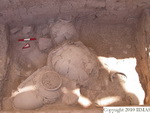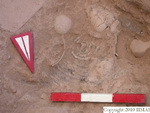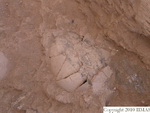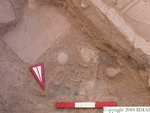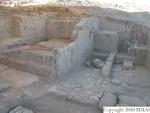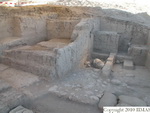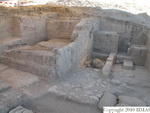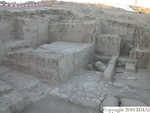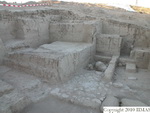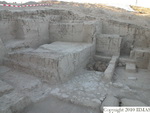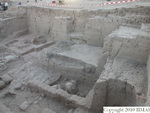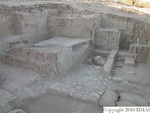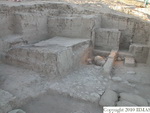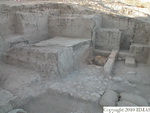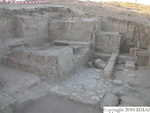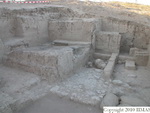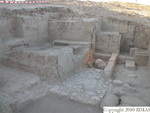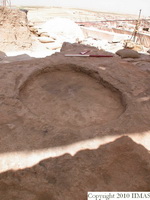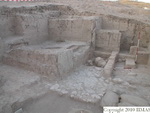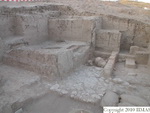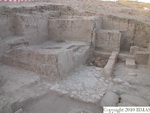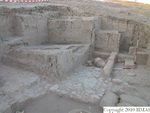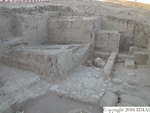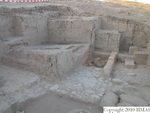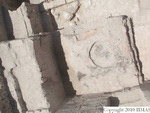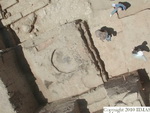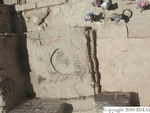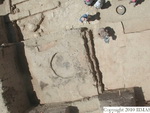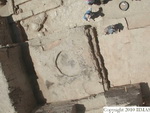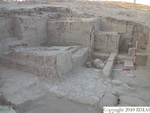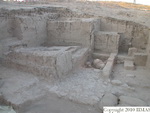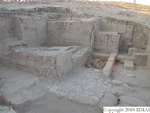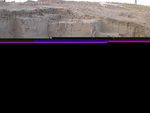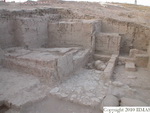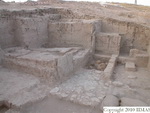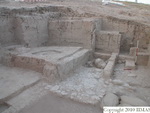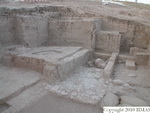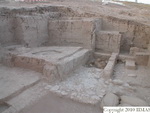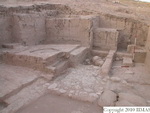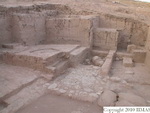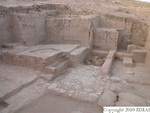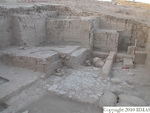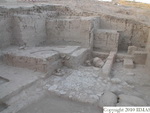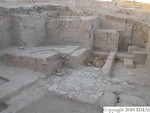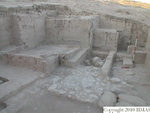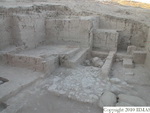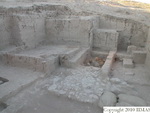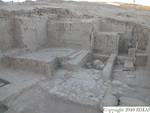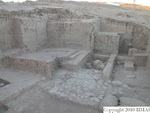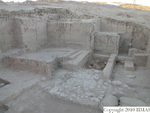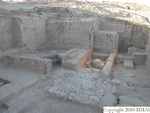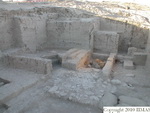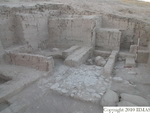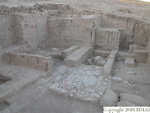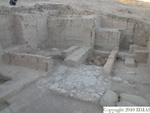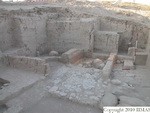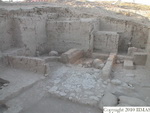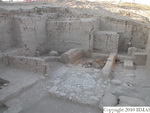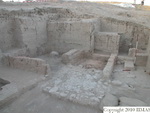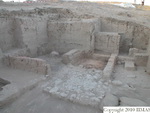1. OVERVIEW
| Roster | Date | Author | Record |
|---|---|---|---|
| Best definition | 2003-08-27 | jw | ceramic vessel [Input: N921jw3.j] |
| Summary | 2021-12-22 | jw | A cache of 36 ceramic vessels in room aggregate a39. It consiste of: well-preserved whole and restorable bowls, cups, various types of large and small jars, and various sherds. Assemblage b1 collects the drawings of these vessels which reflect the contents of what resembles a modern china closet. Their high quality and location near the formal courtyard of the palace suggests a possible use in serving refreshments to visiting dignitaries. They appear to have been suddenly abandoned. [Input: ZFz22jW.j] |
| Best image | 2003-08-29 | !! | 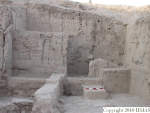 v255 [Input: ZH330jW.j] |
2. IDENTIFICATION
Designation
| Roster | Date | Author | Record |
|---|---|---|---|
| Description (summary) | 2003-08-27 | jw | cache of 36 Phase 3 jars, both large and small. [Input: N921jw3.j] |
3. STRATIGRAPHY
Recovery/Assignment
| Roster | Date | Author | Record |
|---|---|---|---|
| Daily notes about recovery of elements | 2003-08-18 | ms | began removal of jars from this installation today. Declared new feature, f523 to be the fill currently exposed. Until now, f411 was used for the accumulation. The four largest jars, i237, i244, i245 and i246 were defined on N721, and N724 and are part of f411. Today we numbered jars i289, i290, i292, and i293. We also uncovered two more fairly complete, small vessels, i296 and i297, and these were also removed. These latter jar are part of f523. [Input: N818MS.j] |
| Strategy (projected or implemented) | 2003-08-18 | ms | we will continue removing the accumulation f523 on N819 and hopefully reach the floor. It should only be 10 to 15cm below current levels. We also hope the floor will give us some connection with all the walls, f508 to the east, f413 to the west and f458 to the south. There may also be a connection with f208 to the north. [Input: N818MS.j] |
| Notes on recovery | 2003-08-18 | ms | We first thought that this was a ph 3 installation because a number of the larger vessels are similar to those found in f1 which was dated to ph 3. We have been considering the idea that this may be ph 2 because of walls we are finding in k14 which may be higher ph 2. The dating is questionable at the moment. We have not reached the floor yet which is apparent because we still have jars coming up. We originally thought i245 was incomplete, but it now appears to be more vertical and therefore the base would be on the floor, presumably. Also, we excavated accumulation, f521 on N817 in the afternoon and uncovered a number of baked bricks which are sitting at angles. This also indicates we have not reached the floor. f508 is asssumed to be the eastern wall but there is no good face. We uncovered a stone foundation on N817 which is a good indication that this is a wall, but it may have been cut away by pit f460. The eastern face is also not very good, but we do seem to have a line of plaster for it seen when clearing the accumulation, f509. [Input: N818MS.j] |
Volumetric Localization
| Roster | Date | Author | Record |
|---|---|---|---|
| Locus | 2003-08-27 | jw | k5 [Input: N921jw3.j] |
Spatial Aggregation
| Roster | Date | Author | Record |
|---|---|---|---|
| Items within aggregate | 2003-08-27 | jw | i244 (bowl) i245 (jar) i246 (jar) [Input: N921jw3.j] |
4. TYPOLOGY
Morphology
| Roster | Date | Author | Record |
|---|---|---|---|
| Notes on typology | 2023-11-10 | mKB | The vessels from a room in Phase 3 (a34): One room in Phase 3 yielded over 40 vessels of which about 33 could be restored. These are a very important inventory of ceramics, well dated and of sufficient variety to give excellent comparative evidence for other rooms and open spaces within the Phase 3 architecture. In this corpus there are many conical cups of a type that we have already had from a both Phase 2 and Phase 3 contexts. In fact these cups are typical for the Urkesh palace. An experiment carried out by one of our students (Elaine Fuss) who is herself a potter, showed that if the clay is prepared ahead, the potter can produce 500 a day. These cups then were literally the paper cups of the day. Relatively few bowls were found in the room (10 out of the total of about 40). For the most part the room was filled with jars. This is to be expected for a storeroom. However the variety of jars is very interesting. They ranged in size from very small narrow necked jars to jars with a 50cm rim diameter. We have concluded from this that the room was used to store a variety of goods. That it was not a formal storeroom with jars lining the walls can be concluded also form the placement of the vessels. When we first discovered the deposit only the largest jars and a few cups and small bowls were visible on the surface. As we removed the vessels it became apparent that smaller vessels had originally stood near the larger jars in no discernible order. This corpus is also notable in the fact that it reflects a corpus of vessels we had from a storeroom of a private house in F1. While this room was filled with the same types of jars and cups, it also contained a number of luxury vessels. [Input: ZHy10jW.j] |
